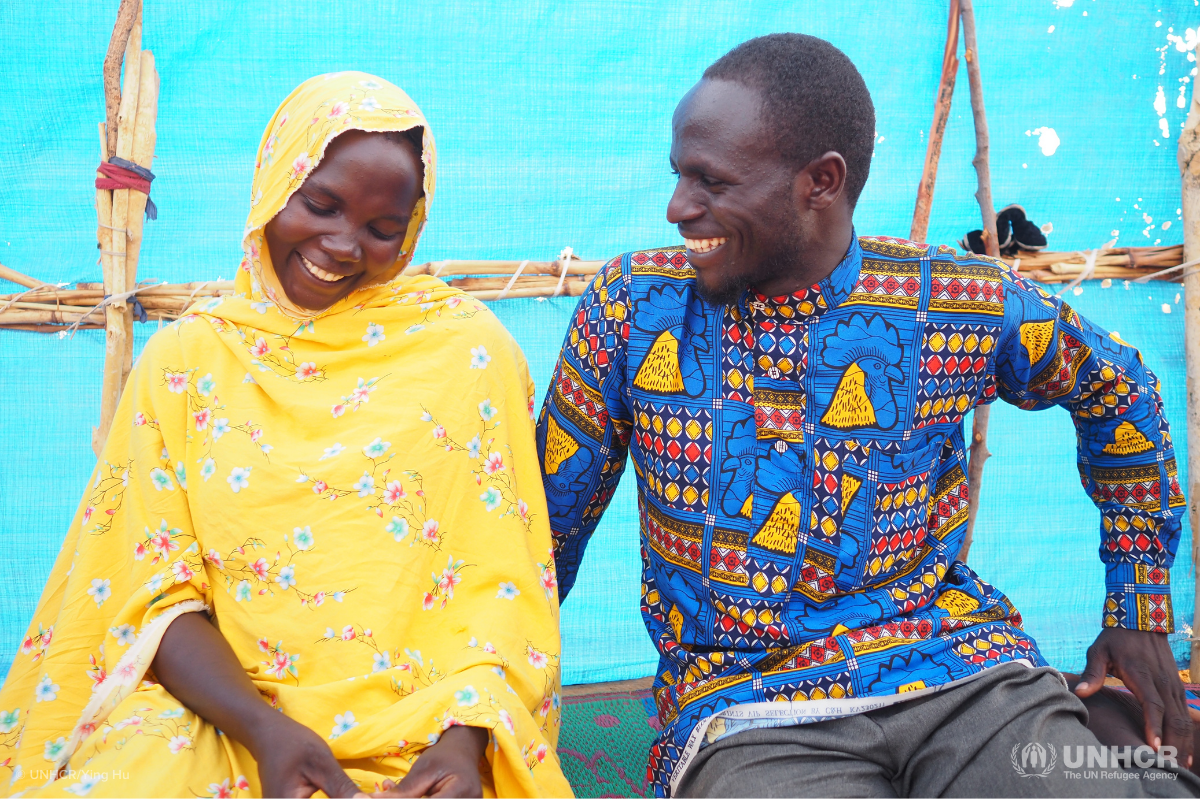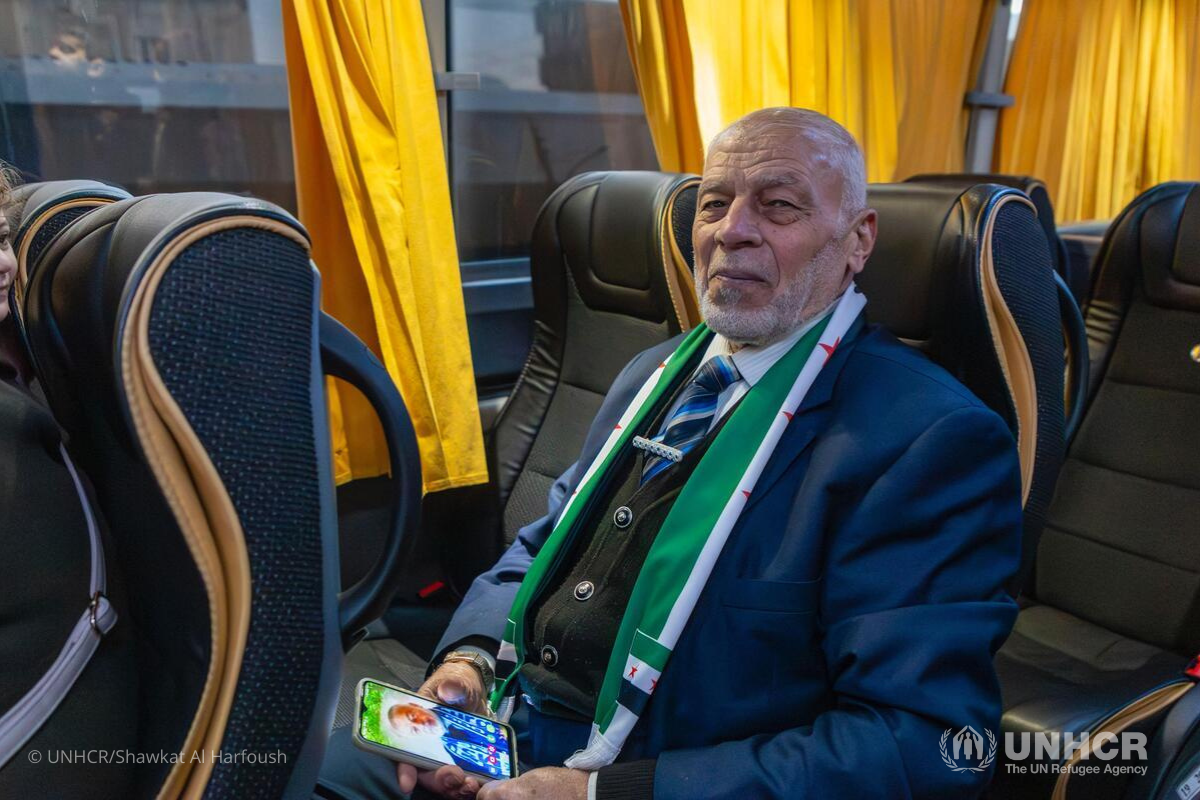Meet five refugee journalists using the power of the press to empower others
The Universal Declaration of Human Rights states that freedom of expression and press is a fundamental human right. A free press is essential in order to understand the unique and complex situations unfolding around the world.
For refugee journalists, sharing stories is a powerful tool to build empathy and understanding for the plight of the millions of people around the world who are forced to flee their homes each year due to war, violence and persecution. Refugee journalists have a unique lens to share the stories and challenges displaced people face — from the trauma of leaving their homes and loved ones behind to the difficulty of adapting to a new culture.
Through their work, refugee journalists become agents of change. They use storytelling to inform, educate and inspire action by giving a voice to the voiceless and empowering their counterparts to share their own stories. On this World Press Freedom Day, meet five resilient refugee journalists, filmmakers, and photographers who are using the power of the press to share their stories, inspire change in their communities and empower one another.
Achouth Deng
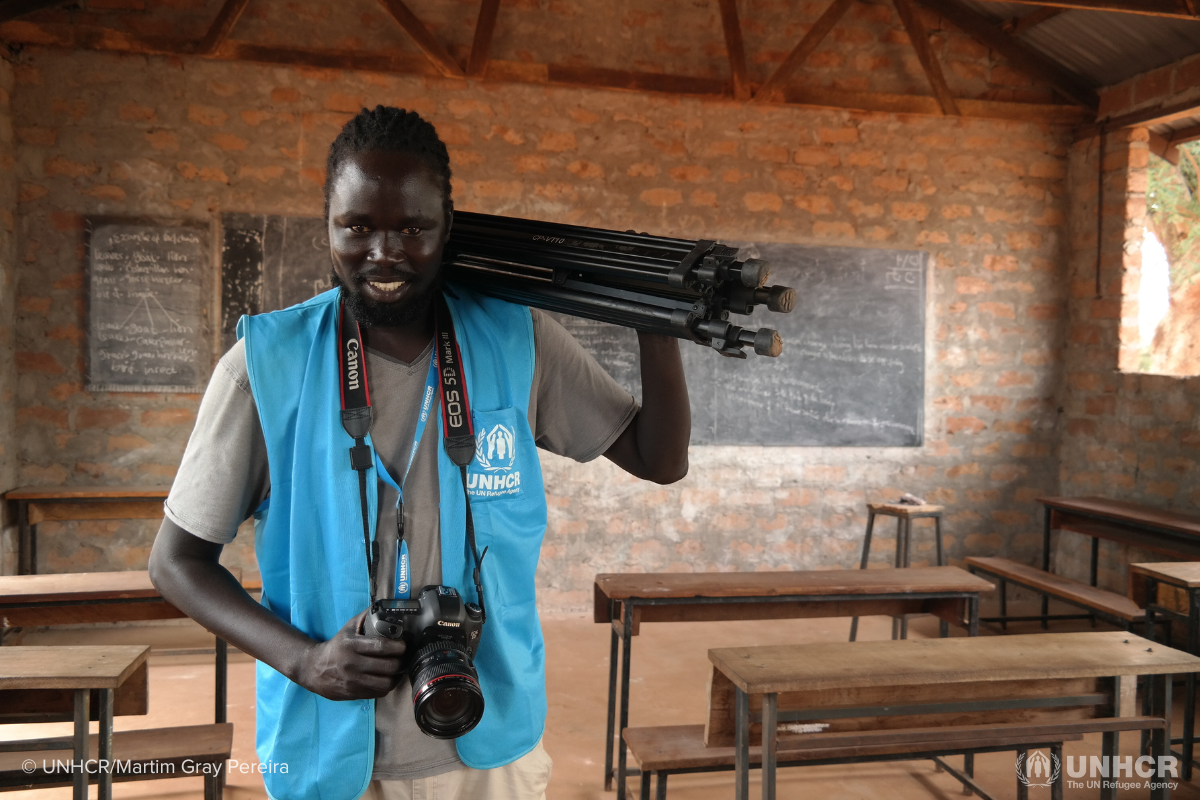 When Achouth Deng was only seven years old, he became an unaccompanied child on the run, forced to flee his home in South Sudan to escape the violence and unrest that plagued his home country. Eventually, he found refuge at the Kakuma refugee camp in Kenya, where he reunited with his parents.
When Achouth Deng was only seven years old, he became an unaccompanied child on the run, forced to flee his home in South Sudan to escape the violence and unrest that plagued his home country. Eventually, he found refuge at the Kakuma refugee camp in Kenya, where he reunited with his parents.
Achouth always admired the journalists he saw in Kakuma and how their cameras captured the stories of refugees from all over the world. He dreamt of one day doing the same, using his own skills and passion to tell the stories of those around him.
Achouth's dream became a reality years later when UNHCR recruited him to film stories at Ajoung Thok and Pamir refugee camps. Through this work, he interviewed refugee students and captured their inspiring stories.
"Working with UNHCR is a dream that came true,” explains Achouth. "Filming refugee children today in my home country brings me many memories."
Today, he lives in Juba, South Sudan, with his wife and one-year-old daughter, where he works as a videographer and photographer for humanitarian organizations to support his family and help his 18-year-old nephew, a refugee in Kakuma, study in Nairobi, Kenya.
For Achouth, being a refugee journalist is not just a job—it's a passion and calling. It's a way to use his skills to make a difference in the world, helping others find hope and inspiration even in the darkest of times. “I see hope in [refugee children’s] eyes,” says Achouth “Hope that there is a future beyond the camp if they take their education opportunities.”
Ramla Aden Balal and Fardosa Sirat
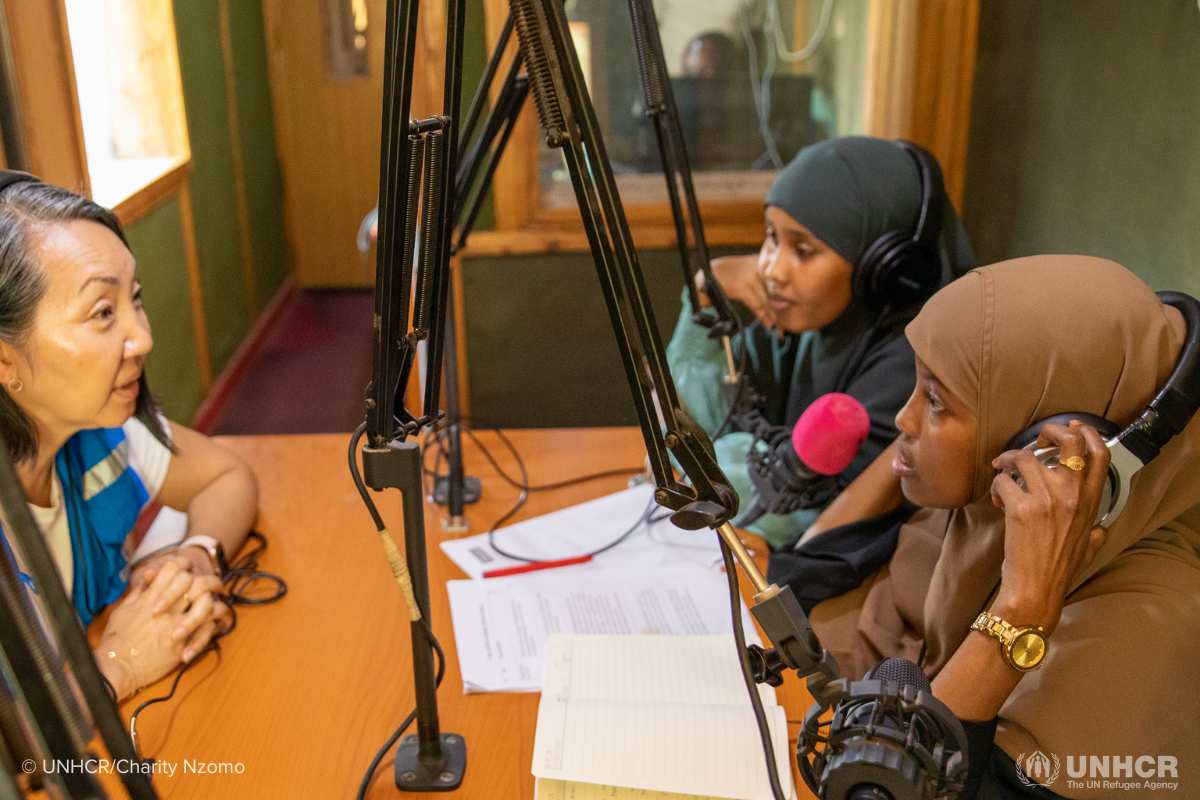 Ramla Aden Balal, a 23-year-old Somali refugee, and her colleague Fardosa Sirat work at Radio Gargar, a community-based radio station situated inside the Dadaab refugee camp in Kenya. The station plays a crucial role in keeping members of the refugee and host communities informed about public health issues and top stories affecting the broader community and country. It broadcasts primarily in Somali, Oromo, Swahili and English.
Ramla Aden Balal, a 23-year-old Somali refugee, and her colleague Fardosa Sirat work at Radio Gargar, a community-based radio station situated inside the Dadaab refugee camp in Kenya. The station plays a crucial role in keeping members of the refugee and host communities informed about public health issues and top stories affecting the broader community and country. It broadcasts primarily in Somali, Oromo, Swahili and English.
During their show, Ramla and Fardosa aim to represent women by sharing stories on different issues that affect them. "I like to empower women through my work," Fardosa says. "Especially with this being the only radio station providing information to refugees."
Initiatives like Radio Garger are crucial for refugee communities as they create spaces for refugees to share their voices and stories. They not only keep refugees informed about important issues in the refugee camp community but also inspire others to share their stories.
The work of refugee journalists like Ramla and Fardosa highlights the power of storytelling in driving change and empowering marginalized communities.
Aziz Kawak
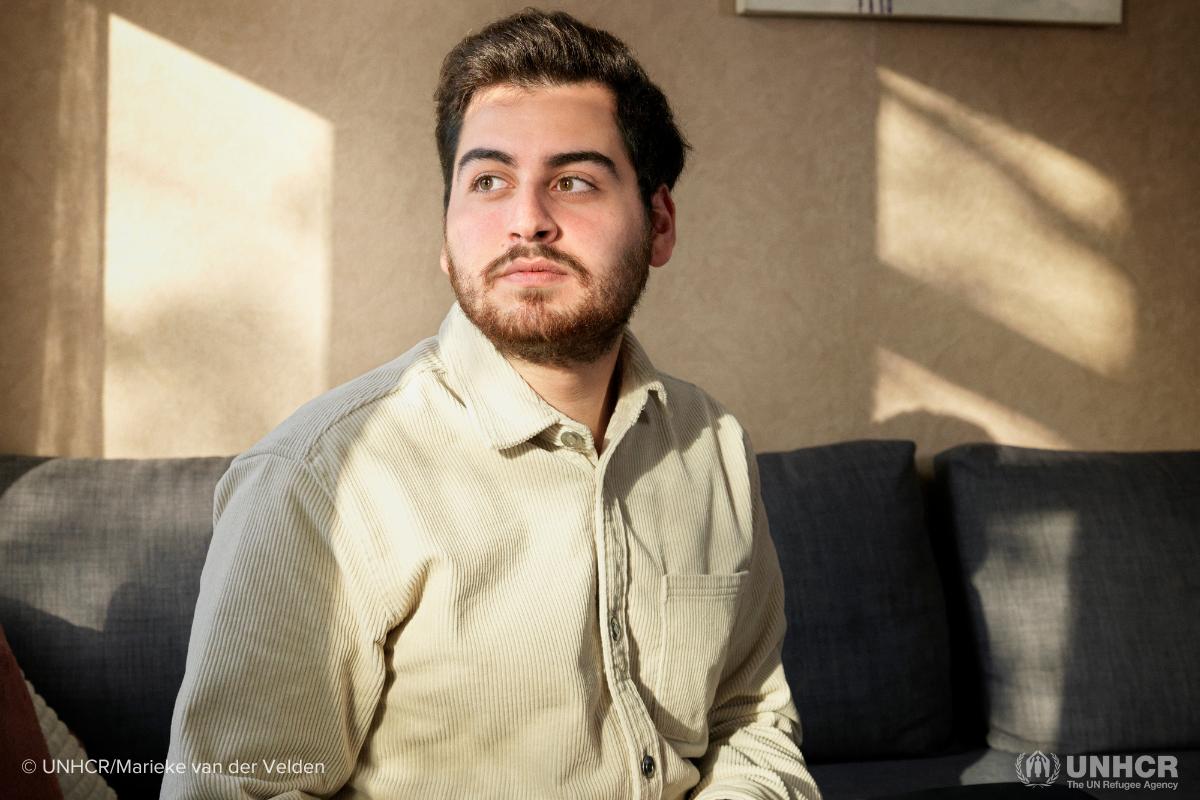 In 2014, Fahim Kawak made the difficult decision to leave his family behind and flee Damascus, Syria, to search for a safer home for them. He was worried about the increasing violence near his home and the potential of his son, Aziz, being drafted into the army.
In 2014, Fahim Kawak made the difficult decision to leave his family behind and flee Damascus, Syria, to search for a safer home for them. He was worried about the increasing violence near his home and the potential of his son, Aziz, being drafted into the army.
Despite never wanting to separate as a family, Fahim felt he had no other option. He spent a few months in Turkey before crossing the sea to the island of Kos in Greece. After spending two months in Greece, Fahim attempted to travel by plane from Athens to the Netherlands — it took him ten attempts before he was able to do so. Once in the Netherlands, Fahim obtained a residence permit, and the rest of his family was able to join him.
“The day I saw my father again was the best moment of my life. I cannot describe it well. It was beautiful, but it was so much more than that,” says Aziz.
Today Aziz is an accomplished photographer and journalist who uses his family's story and his experience as a refugee to capture the resilience of other displaced people. His work focuses on portraying the personal stories of refugees in the Netherlands and the Middle East, and in 2019 he even made a short documentary about refugees in Lebanon.
"We've been through the same thing, we've all lost our country and had to flee. I am only lucky to be in the Netherlands, they don't have that,” says Aziz, recognizing the importance of his position and job.
For Aziz, being a refugee journalist is a way to make a difference and give a voice to the voiceless. He is proud to use his skills to tell the stories of other refugees and help them share their experiences with the world.
Narjis Al-Zaidi
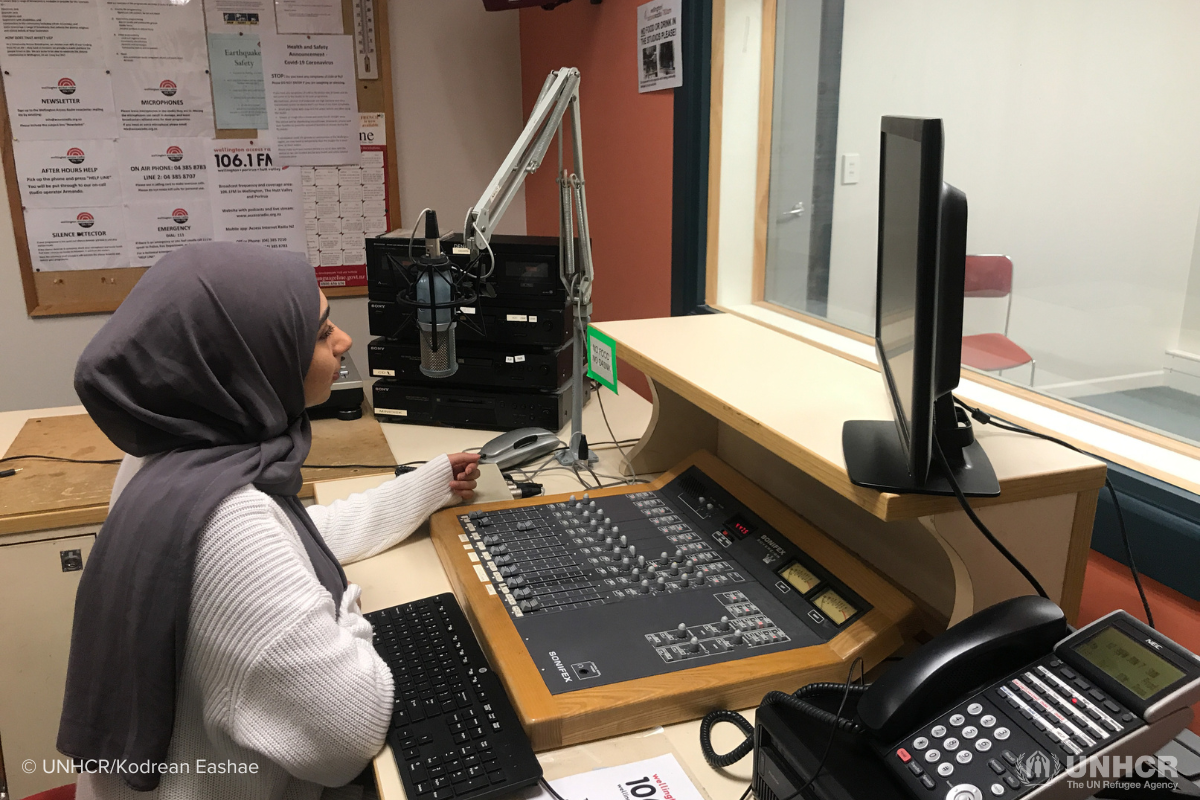 Narjis Al-Zaidi, a young Iraqi refugee, has found success as a university student in Australia and now devotes her time to giving a voice to her community. She hosts the radio program "Voice of Aroha," aiming to create a platform where individuals from both refugee and non-refugee backgrounds can share their experiences and views.
Narjis Al-Zaidi, a young Iraqi refugee, has found success as a university student in Australia and now devotes her time to giving a voice to her community. She hosts the radio program "Voice of Aroha," aiming to create a platform where individuals from both refugee and non-refugee backgrounds can share their experiences and views.
During the height of the COVID-19 pandemic, Narjis and her co-presenters noticed a significant gap in access to information — official health advice was not immediately available in languages such as Arabic, Amharic, Farsi, and Spanish, nor was it accessible to those who weren't digitally literate. Understanding the importance of reliable information during a global crisis, they decided to use their platform to provide accessible information in various languages to their listeners.
“Coming from a refugee background can feel isolating on its own,” Narjis says. “We wanted to keep our listeners informed because it was an overwhelming situation we all had to deal with, and most of the discomfort came from the uncertainty of [not knowing] what was going to happen next and how it would affect us.”
Through their efforts, Narjis and her team have become instrumental in creating a more inclusive and informed community.
How you can help…
By becoming a USA for UNHCR monthly donor, you can continue to uplift refugee voices and ensure they have all the tools they need to pursue their dreams and passions.
With your support, UNHCR and its partners can continue to support initiatives that provide education, vocational training and access to resources, enabling refugees to build better lives for themselves and their families and empower their communities.
